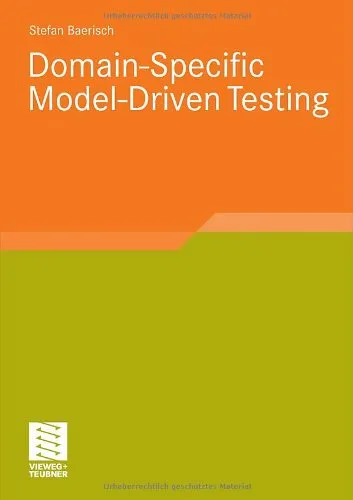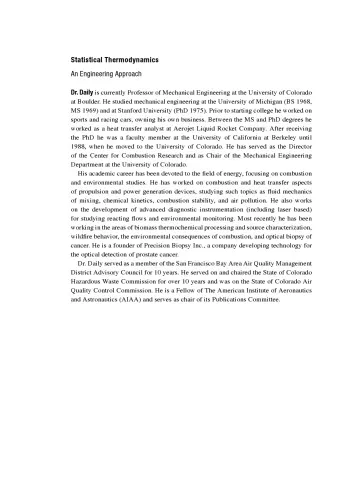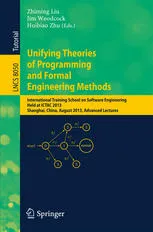Trustworthy Systems Through Quantitative Software Engineering
4.5
Reviews from our users

You Can Ask your questions from this book's AI after Login
Each download or ask from book AI costs 2 points. To earn more free points, please visit the Points Guide Page and complete some valuable actions.Related Refrences:
Introduction to "Trustworthy Systems Through Quantitative Software Engineering"
Software is at the core of modern society, powering everything from critical infrastructures to everyday applications. Yet, with increasing complexity and demands for reliability, ensuring trustworthiness in software systems is a growing challenge. "Trustworthy Systems Through Quantitative Software Engineering" addresses this challenge head-on, presenting a systematic, metrics-driven approach to developing high-quality, dependable systems. Authored by Lawrence Bernstein and C. M. Yuhas, this book provides an invaluable resource for software engineers, project managers, and anyone aiming to create systems that users can trust.
Summary of the Book
The book dives deep into the principles of quantitative software engineering, weaving theoretical insights with practical methodologies to achieve reliable, robust systems. It emphasizes measurable approaches to building software, drawing from proven techniques in system design, statistical analysis, and predictability. Divided into well-structured chapters, it provides actionable guidance at each phase of the software lifecycle—from initial requirements through testing, maintenance, and beyond.
Bernstein and Yuhas focus on the intersection of software engineering and decision-making, advocating for data-driven judgments to mitigate risks, reduce defects, and enhance system performance. The book supplements its lessons with real-world case studies, ensuring readers understand how the concepts can be applied effectively to large-scale software systems.
At its core, the book is a guide for building systems that users can depend on—from safety-critical medical devices to enterprise platforms handling sensitive data. By mastering its methodologies, readers stand to achieve higher standards of software trustworthiness while reducing costs, timelines, and defects.
Key Takeaways
- The importance of trustworthiness in software systems and its direct impact on usability, safety, and reputation.
- A detailed exploration of quantitative techniques—including metrics, models, and algorithms—for engineering robust software.
- Strategies for minimizing risk through predictive software quality assessments based on historical and real-time data.
- Proven methodologies for handling complexity in large-scale systems, including modular design and system verification.
- Discussion on how to apply lessons learned from past software failures to improve future frameworks and solutions.
Famous Quotes from the Book
"Trustworthiness is not something that can be added to a system after it is built; it must be engineered from the very beginning."
"Metrics are not just numbers; they are tools that shape the decisions we make and the systems we create."
"A trustworthy system is not defined by the absence of failures but by the presence of resilience and reliability."
Why This Book Matters
In a world increasingly dependent on software, trustworthiness is no longer optional—it is essential. Failures in software systems can lead to devastating consequences, from financial losses to threats to human safety. This book is a vital toolkit for professionals aiming to prevent such failures, offering a pragmatic, proven roadmap to develop reliable, maintainable, and secure systems.
The authors’ approach is both rigorous and accessible, making it applicable to a broad audience ranging from students of software engineering to seasoned practitioners. By merging concepts from quantitative analysis and practical experience, the book bridges the often-overlooked gap between theoretical principles and real-world implementation.
The principles outlined in "Trustworthy Systems Through Quantitative Software Engineering" remain relevant as industries embrace emerging technologies like AI, IoT, and cloud computing. As these systems grow more complex, the need for measurable, predictable reliability becomes even greater. This book equips readers with the knowledge and tools necessary to stay ahead in this ever-evolving landscape.
This is not just a book about software engineering; it’s a call to action for building a safer, more dependable digital world. For professionals, students, and leaders who aim to make a lasting impact in their field, "Trustworthy Systems Through Quantitative Software Engineering" offers an indispensable resource.
Free Direct Download
You Can Download this book after Login
Accessing books through legal platforms and public libraries not only supports the rights of authors and publishers but also contributes to the sustainability of reading culture. Before downloading, please take a moment to consider these options.
Find this book on other platforms:
WorldCat helps you find books in libraries worldwide.
See ratings, reviews, and discussions on Goodreads.
Find and buy rare or used books on AbeBooks.
1311
بازدید4.5
امتیاز0
نظر98%
رضایتReviews:
4.5
Based on 0 users review
Questions & Answers
Ask questions about this book or help others by answering
No questions yet. Be the first to ask!













